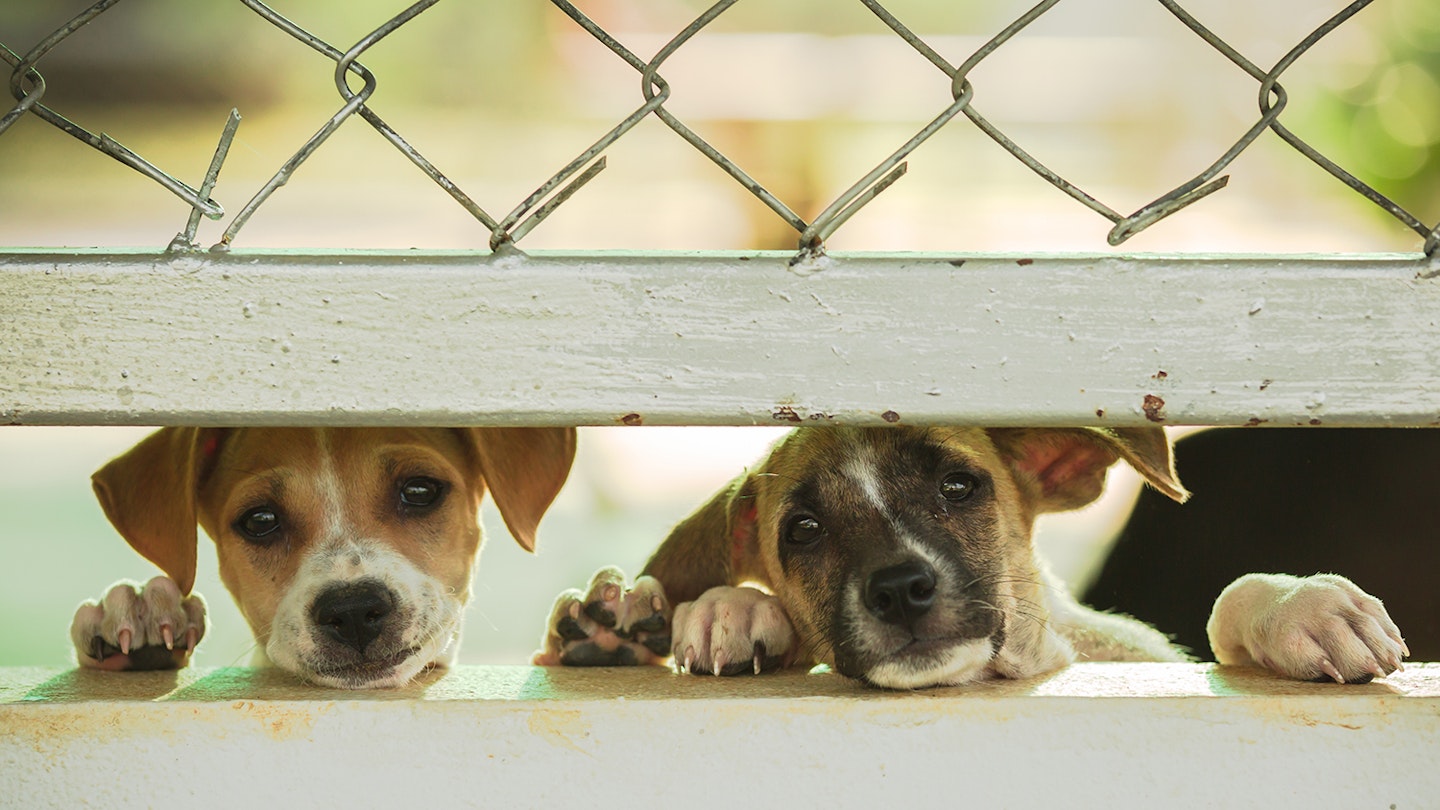Every year, thousands of dogs are bred in squalid conditions on puppy farms, leaving them in pain, infected and physically and mentally scarred - yet it's still legal
When Vanessa Linnelle first started looking after dogs rescued from puppy farms four years ago, she was appalled at the state they were in when they arrived at her animal rescue shelter.
And Vanessa's horror has intensified as she's seen the effects of the terrible treatment the dogs clearly endured before they were saved.
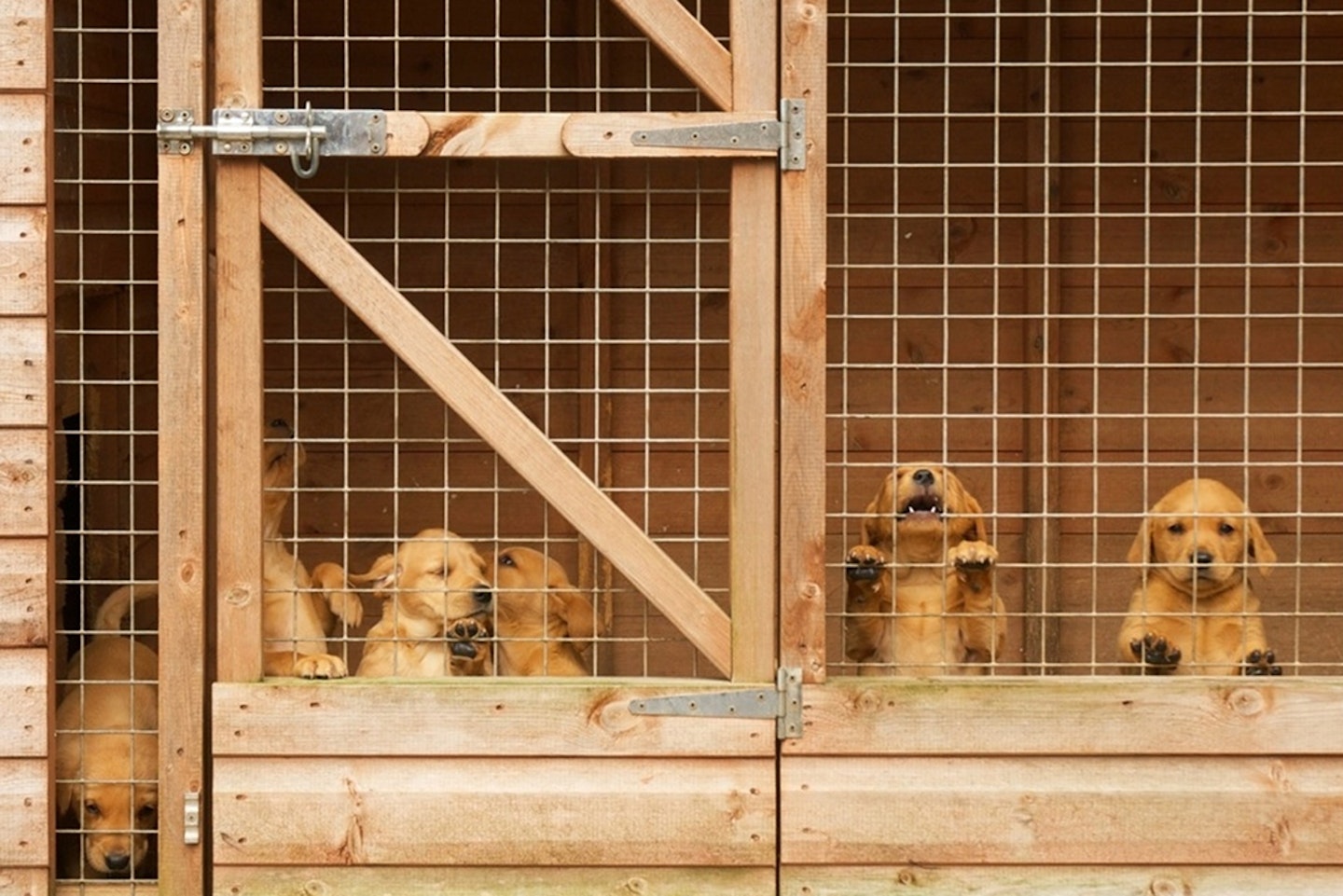
Shockingly, one in three puppies bought in the UK are bred on dog farms and one million puppies are bred in them every year.
Tragically, because of the grim conditions the dogs are often kept in, one in five puppy farm dogs will die before they are six months old.
Vanessa, 61, who runs the St Giles Animal Rescue Centre, near Taunton, says: "Their coats are often matted and covered in faeces. They are terrified of people as they often haven't had any interaction with humans at all, except being prodded with a 'handling pole' to move them around. They have been living in tiny pens in the darkness and are riddled with disease and ear infections. It's devastating to see."
It breaks my heart that dogs can ever be treated so appallingly.
She added: "We took in 250 dogs last year, with around 80 of them coming from puppy farms."
Some of the conditions are beyond belief. Tiny puppies are locked up in dark, filthy cages, whimpering as they've been separated prematurely from their mothers. They're held in disease-ridden sheds before being sold for up to £3,000.
It can cost over £5,000 to make a dog healthy again physically – though normally £300 – but emotionally it can be far harder.
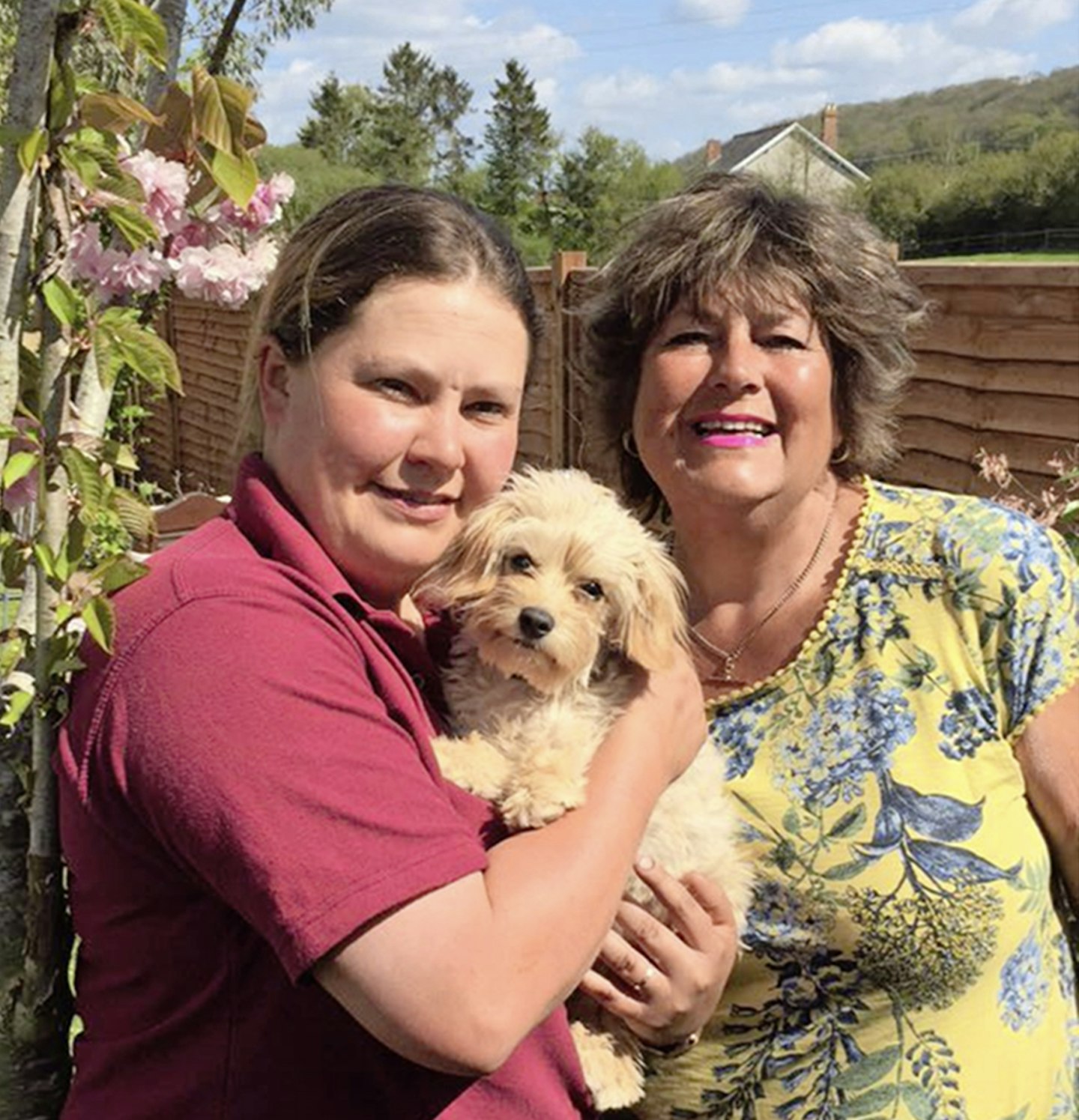
Astonishingly, though, puppy farming in the UK is not illegal, despite MPs calling for this to change.
TV vet Marc Abraham, 42, launched PupAid in 2010 – a campaign to stop the cruel practise.
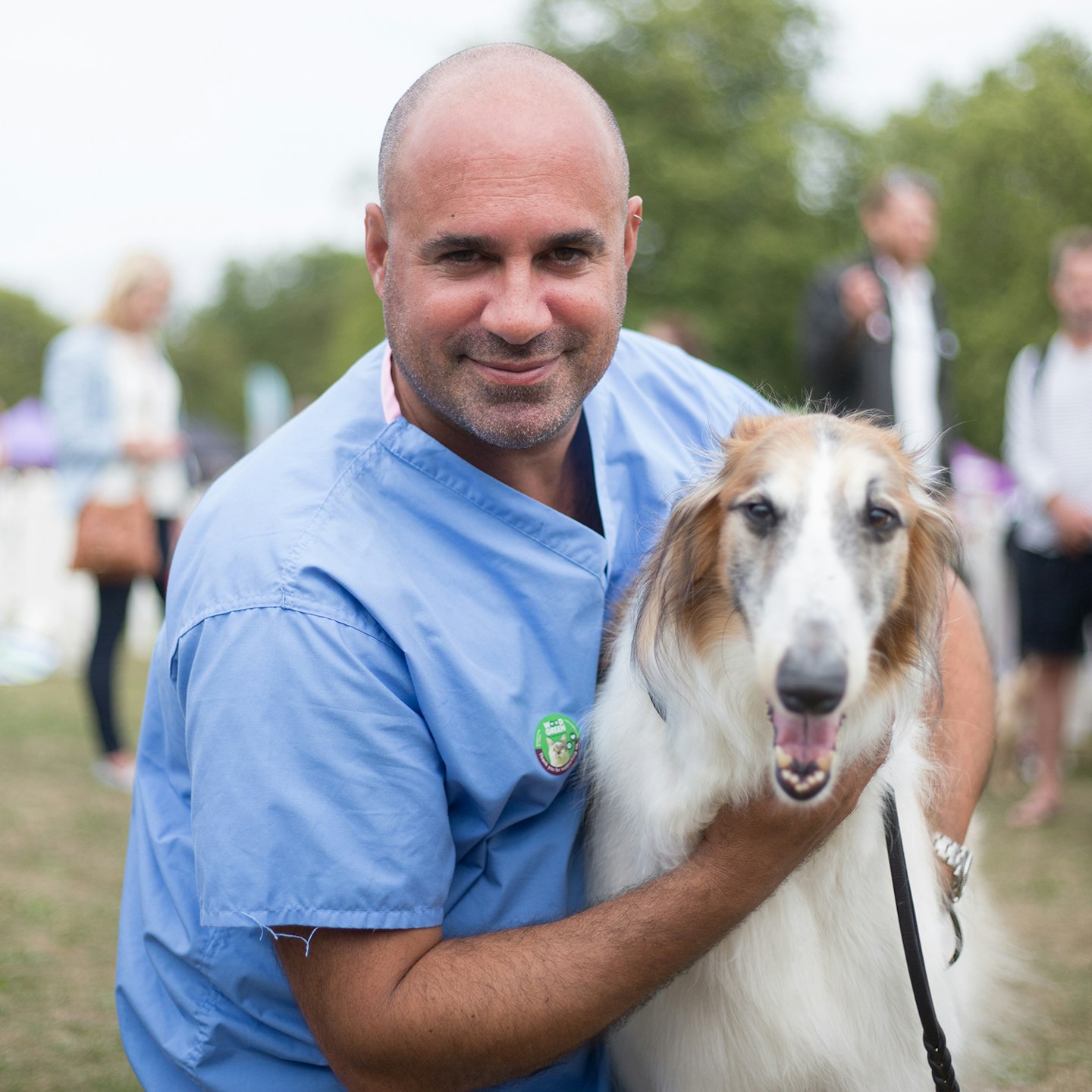
He tells Closer: "There are hundreds of licensed puppy farms in the UK and there's no limit to the number of dogs each farm can have. There are also illegal puppy farms, but you'd be hard pressed to spot a difference in the inhumane conditions these dogs and puppies are kept in.
"Mums are used as breeding machines until they are infertile and then many are often killed. Each farm can have up to 200 breeding dogs and the mums will be expected to produce two litters of up to 10 puppies a year.
"I can't understand why this form of breeding puppies is still legal and we are doing everything we can to stop it. People who want to buy dogs should either adopt a rescue dog or buy from a breeder through the Kennel Club's Assured Breeder Scheme.
And Vanessa agrees wholeheartedly. She says: "We've had about 80 dogs come in from puppy farms – every single one of them has had terrible problems from the conditions they are kept in or from over-breeding and in-breeding. Please make sure you don't fuel this terrible industry."
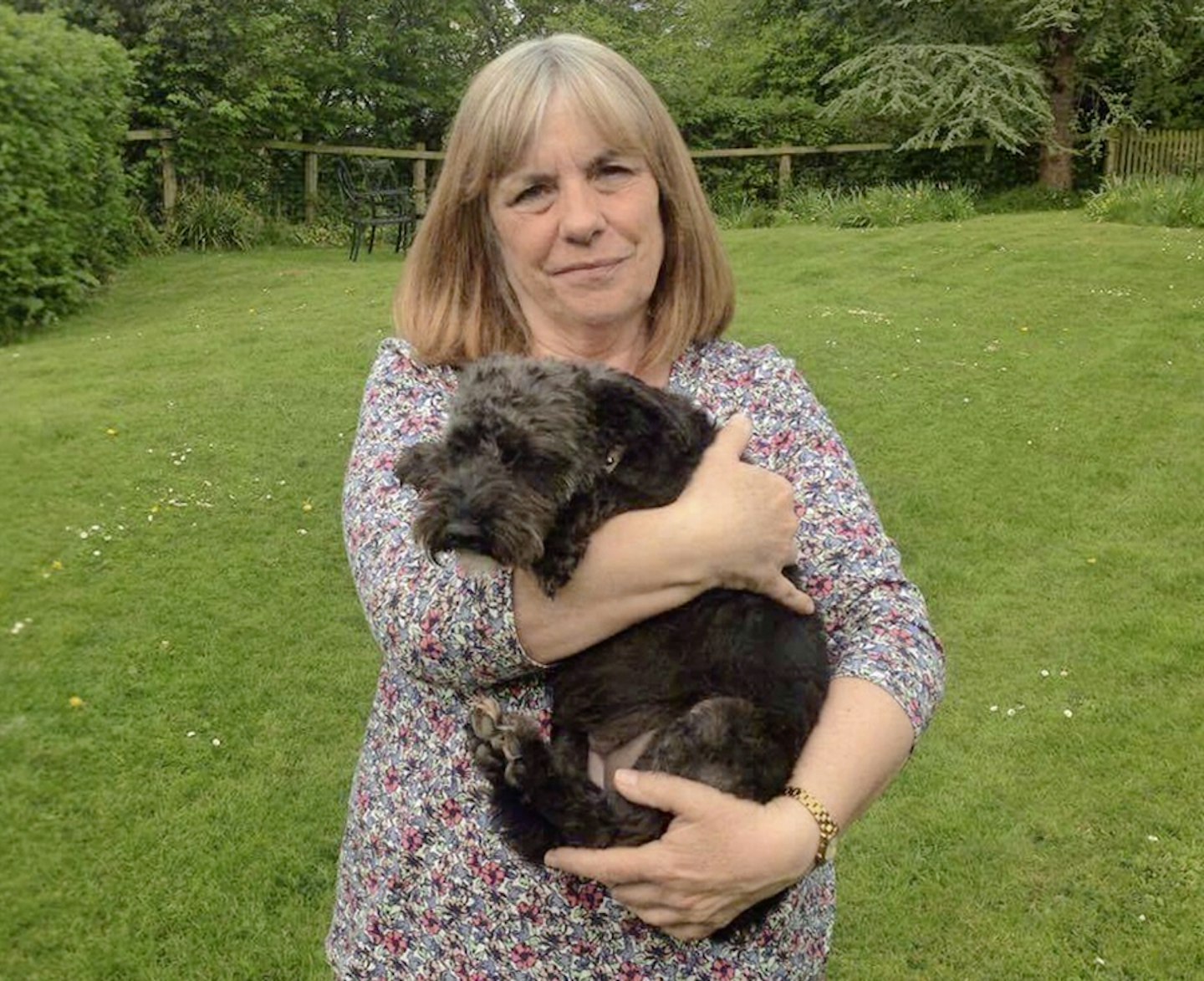
Sarah Harrison: "It took nearly a year to be able to stroke my rescue dog"
Sarah Harrison, 61, fosters rescue dogs who are too damaged to be rehomed without rehabilitation.
Her latest dog is Lottie, a schnauzer cross, who she's had since June 2016.
She says: "When Lottie first arrived she was eight-months-old and terrified of everything.
"She'd come from a puppy farm in Wales and hid in a disused fireplace and wouldn't come out, I could just see two eyes glinting out at me. I'd put out food and leave her alone so she could feel safe enough to come out to eat.
"She'd clearly never been handled kindly by a human – she was terrified of us. She'd been shaved by the animal rescue centre, as her fur was matted and covered in faeces and she was in a complete state both physically and mentally."
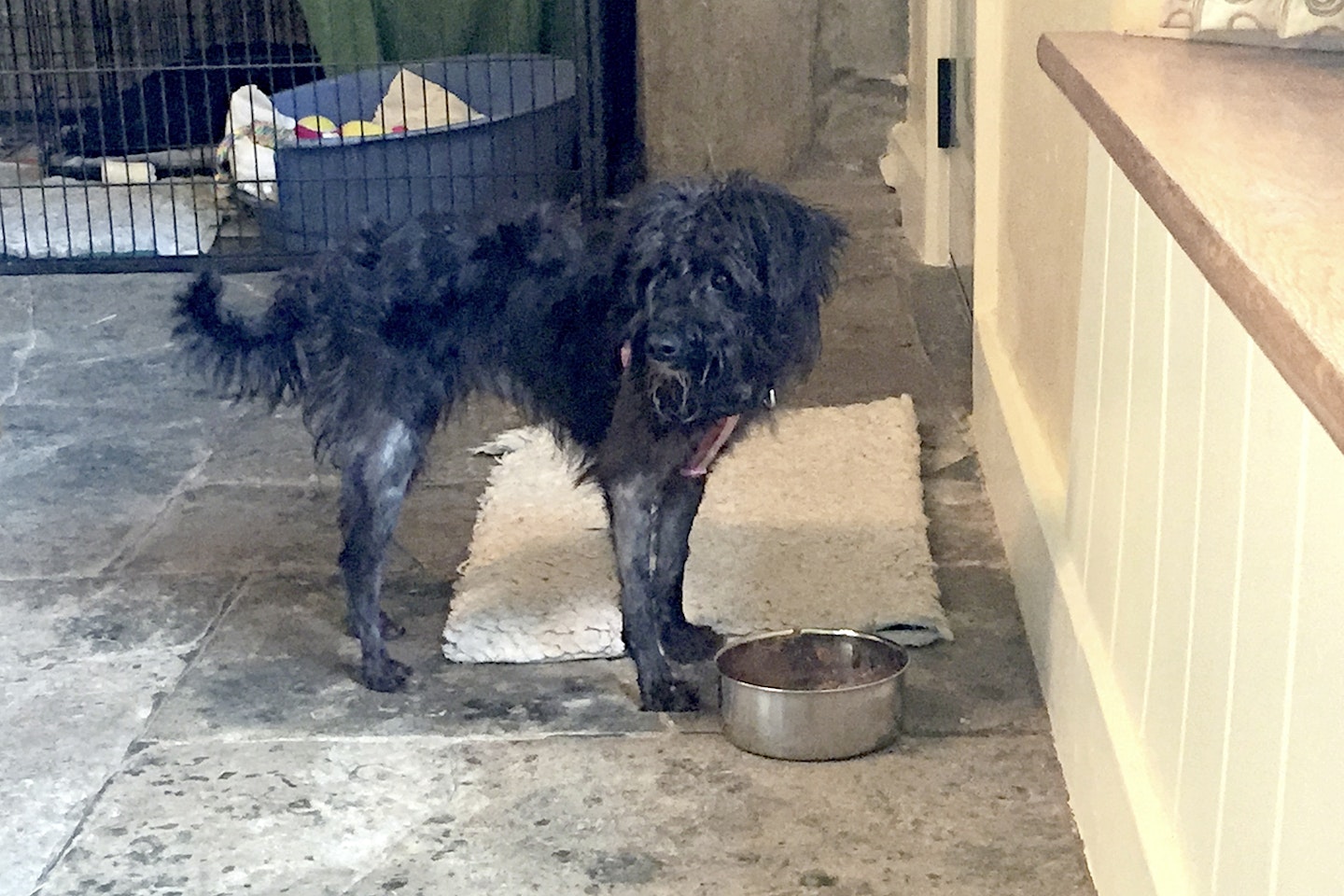
"Dogs are naturally loving and trusting of humans – so it's absolutely heartbreaking when that has gone, and horrific to imagine what caused her to be so frightened. To start with she'd even panic if she was in the kitchen with me and I absentmindedly shut the door, she'd feel trapped. Her eyesight had obviously been damaged from being kept in the dark – she couldn't see properly, although thankfully that improved just by being in daylight.
"It's nearly a year since she came to me. It took six months before she wouldn't run away when I went to pat her, and it's only in the past month that she will voluntarily come up to me to be patted or sit on the sofa beside me.
"She's just about ready to be rehomed now. It will break my heart when she goes, but I already have three rescue dogs that I fostered and couldn't bear to part with so I don't have room for another one. She's now a loving dog again, but she deserves the very best home after what she's already endured in her short life."
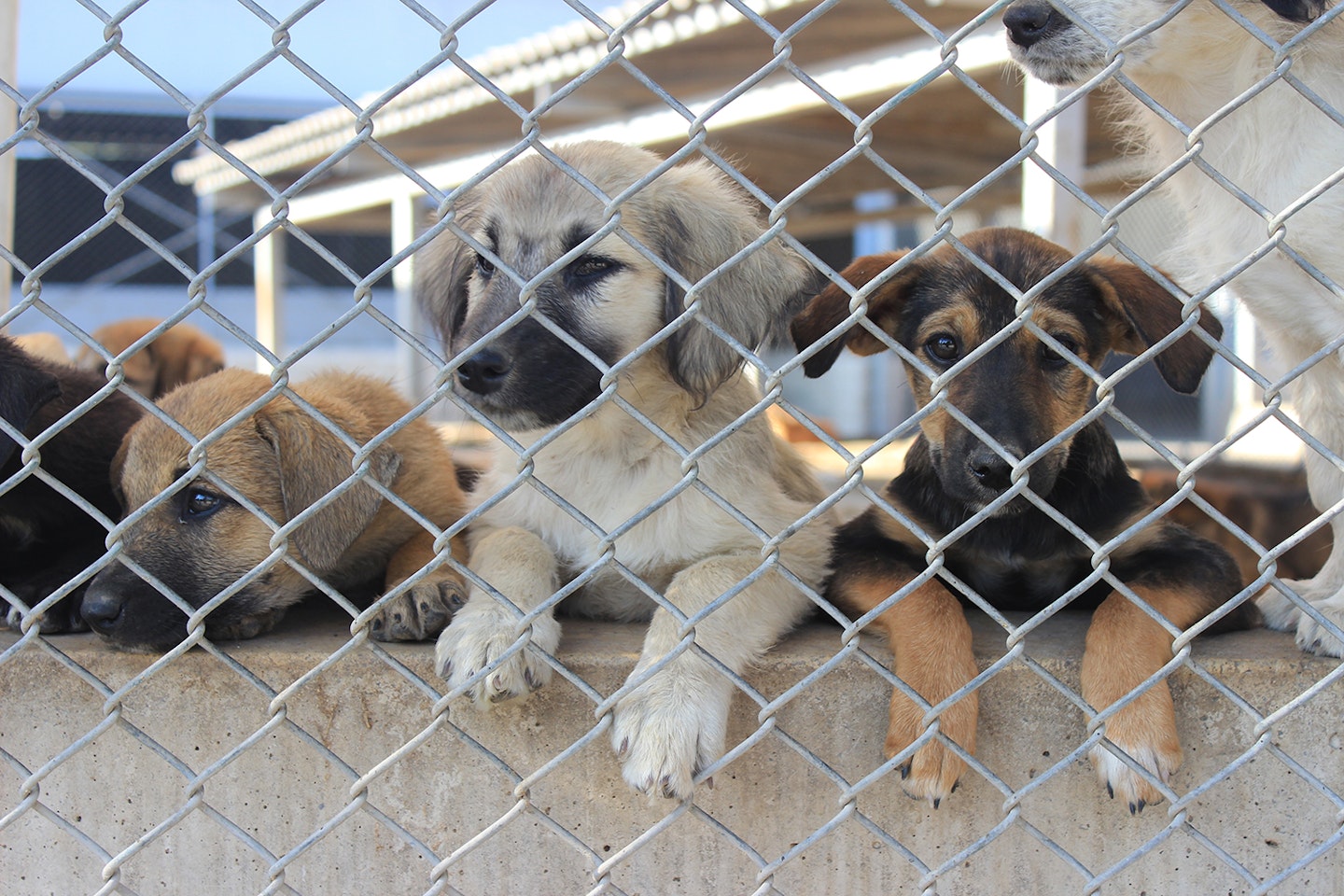
The dos and don'ts of buying a puppy
-
Don't ever buy from pet shops, garden centres, websites or third party sellers – the vast majority of them are supplied by puppy farms
-
Always ask to see the mother and check the puppy is interacting normally with its mum
-
Get advice from your vet: they can recommend breeders
-
Check the paperwork – all ethical breeders should be able to provide medical records
-
Go to puppycontract.org.uk to download a booklet with tips from the RSPCA
Have you ever bought a puppy from a farm? Let us know over on Facebook and Twitter.
Read more like this:
Amy Childs: 'We must end cruel puppy farming- it's heartbreaking'
Jodie Marsh was left FUMING after this controversial moment in TOWIE
Poor abandoned Staffie puppy thrown in the Grand Union Canal
